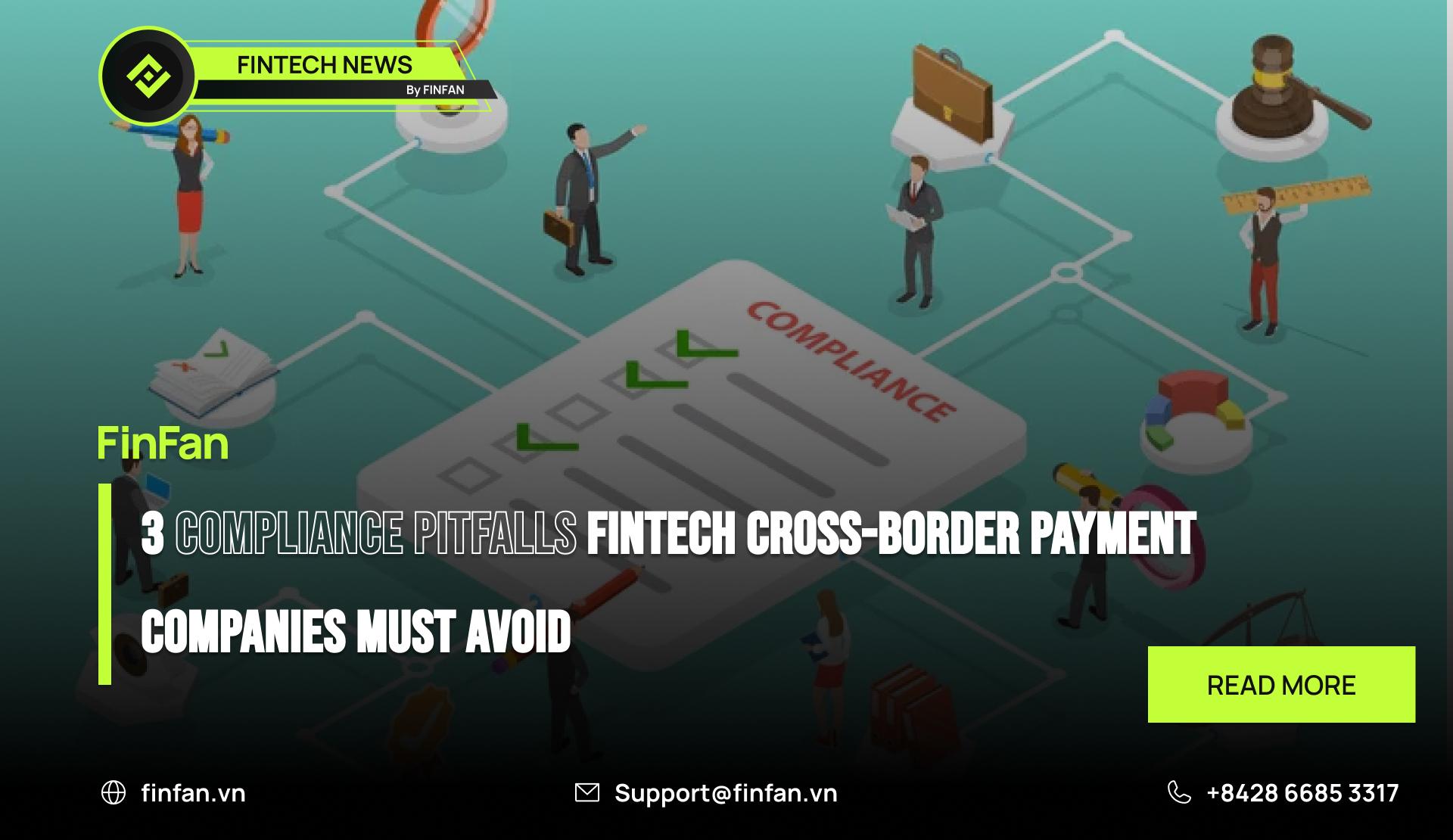Cross-Border Payment in Vietnam (Part 1) - 3 compliance pitfalls fintech cross-border payment companies must avoid in 2024

Businesses that involve the management and transfer of money, particularly those that cross borders, are strictly monitored, controlled and highly regulated.
This is because cross-border transfers are exposed to financial crimes such as money laundering and terrorism financing. The United Nations estimates 2% to 5% of global GDP is laundered a year. That’s between USD 800 billion and USD 2 trillion!
Regulations are put in place to ensure the safety and security of the remittance system for both businesses and customers.
JPMorgan, in a report, said criminal groups target cross-border transactions because they are fragmented, confusing and complicated. There are no standard rules: each country has its banking system and regulations. There are about 26,000 different rules for global payments, according to the report.
In 2022, banks and financial institutions were fined almost USD 5 billion, or 50% more than the year before. This was for various non-compliance, including anti-money laundering, sanctions breaches and know-your-customer (KYC) system deficiencies. There were 3,495 cases - with the top ones involving banks and FIs in Denmark, Switzerland, the US, Pakistan and more. Total fines reached USD 55 billion since the 2008 global financial crisis.
According to the International Monetary Fund, similar channels used for money launderers are also used to finance terrorism and the proliferation of weapons of mass destruction.
As international money transfer operators (IMTOs) and cross-border fintech companies are subject to local, national and international regulations, below are the top 3 compliance pitfalls in remittance that businesses should avoid.
KYC
KYC is important for customer identification, a crucial part of stopping money laundering and terrorism financing. It helps businesses check if their customers are legitimate. To complement KYC, companies like international money transfer operators (IMTOs) need to do more checks, such as customer due diligence (CDD) and enhanced due diligence (ECDD). These help a business to mitigate risk further, especially to find out if a customer is a politically exposed person (PEP), who might be more likely to be involved in cross-border financial crime.
Case: The UK’s Santander Bank was fined USD 130 million after the country’s Financial Conduct Authority found that it had implemented inadequate KYC solutions in the last couple of years. This resulted in the bank failing to verify the nature of their customers’ businesses and made it easier for opportunists to do unlawful money activities through the bank.

Sanctions
Sanctions are rules made by governments or international bodies like the UN that limit or restrict what certain people or countries can do. Businesses that engage in cross-border payments like IMTOs must check if their customers are on these sanction lists. They also need to know which sanction lists to follow. Failure to do so will mean facing dire consequences such as penalties and reputation damage.
Case: In May, a Malaysian fintech giant was fined by the country’s central bank for failing to screen its customers against sanction lists. It reportedly breached the Financial Services Act 2013 and the Anti-Money Laundering and Counter Financing of Terrorism (AML/CFT) regulations.
Suspicious transactions
In the remittance industry, transactions move quickly. This increases the risk that payments might be laundered money or used to fund terrorism. These are called suspicious transactions and a typical compliance setup flags them routinely for attention or investigation.
Case: On 13 Sept 2022, the Danske Bank was fined USD 1.92 million by the Central Bank of Ireland for multiple breaches of the Criminal Justice (Money Laundering & Terrorist Financing) Act 2010 between 2010 and 2019. The bank’s automated transaction monitoring system had failed to monitor some customer groups in its Dublin branch, causing certain customer categories to be excluded from screening even if they were rated as medium or high-risk.
*Editor’s note: This is the first article in our 2-part series on navigating compliance in the cross-border payment industry. Interested to know more about our compliance programme and how it can secure your business transactions, contact us.
About FinFan
FinFan is a cross-border embedded financial services company that focuses on mass disbursement, fund collection, card processing, IBAN, and digital APMs solutions, which can provide valuable input and integration on and for the same.
FinFan is already integrated with almost the world's well-known MTOs, PSPs, switch, and core fintech platforms such as Money Gram, Thunes, Qiwi, Remitly, World Remit, Bancore, PaySend, Terrapay, Ria Money Transfer (Euronet), Dlocal, Ripple, TripleA, FoMo Pay, Wings, etc.
For more information, please get in touch with us through:
🌐https://finfan.io
📞(+84) 2866 85 3317
✉ support@finfan.vn
LinkedIn: FinFan





![[REPORT] How Real-Time Payments Are Redefining The USA Remittance: A New Era for U.S.–Vietnam Money Transfers](/_next/image?url=https%3A%2F%2Fcdn2.finfan.io%3A8443%2Fuploads%2F2025%2F1%2F1770175622190-main-thumb.jpeg&w=3840&q=75)